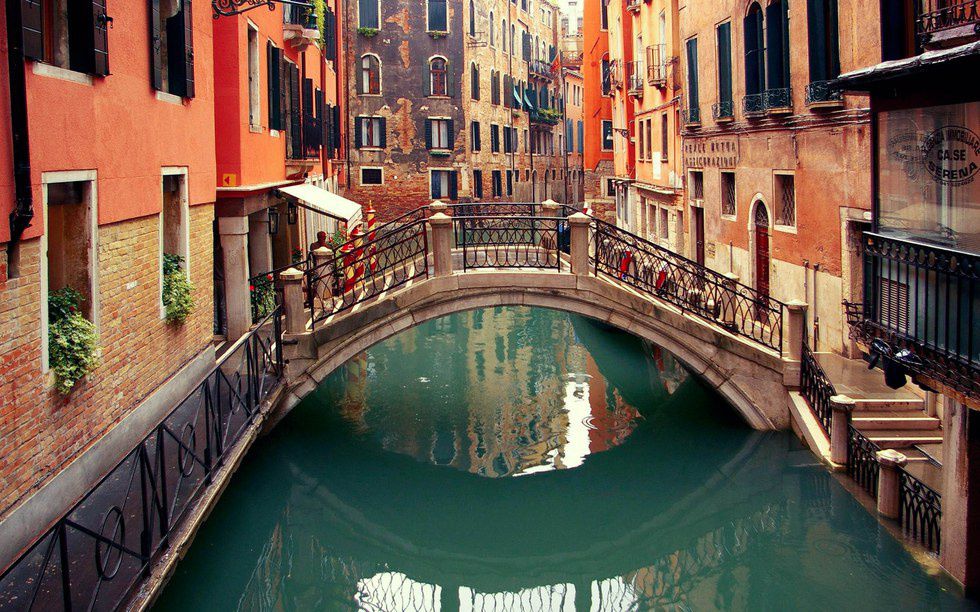Whether you're traveling to another country or across town, the opportunity to explore another culture is a magical experience that creates a cluster of emotions. Perhaps it's the unfamiliar surroundings, or the foreign flavors of local foods, that leaves us stranded and welcomed all at once. Whatever it maybe, the thrill of traveling can be new and intimidating, but it never fails to leave me hungry for cultural experience and thirsty for knowledge.
Recently, my family and I visited Italy where a very wise travel guide named Roberto challenged us to embrace and experience Italy like a traveler, not a tourist. When we travel, we have a tendency to have the mentality of a tourist and miss the historical and cultural experiences that lie before us. You might be thinking, what is the difference between a traveler and a tourist? Here are some useful tips on how to explore another culture like a traveler.
1. Act spontaneously
Plans are for tourists, change of plans are for travelers. While the basics of scheduling your flights and hotels is an essential part of any travel, don't box yourself in with a strict itinerary. You need to be willing to have some wiggle room and seek spontaneous adventures. If you get lost, never pull out your map! A tourist would pull out their map or ask for directions, but a traveler would get lost in the culture and enjoy the walk. Maybe, you will stumble upon your own hidden treasures. Remember, sometimes the most unexpected things that you stumble across on will become your most memorable experience.
2. Avoid stereotyping your travel experience
When we travel, we have the tendency to compare and contrast the new culture with our existing culture. If we love to point out all the differences, then why did we travel to this new country in the first place? The difference between a traveler and a tourist is a state of mind: A traveler recognizes the importance of blending and absorbing with the culture. We need to accept the fact that this new country is indeed a little different than our existing culture, but should that stop us from experiencing life? Remember, stepping outside your comfort zone is the basic component of travel.
3. Visit the less traveled paths
If you want to discover something worthwhile, then visit other parts of the country that aren't detailed in your guidebooks. For example, we visited San Gimignano outside Florence, Italy and it allowed us to truly experience the historical, cultural, and social life of the Italian countryside. We were able to interact with the locals and experience the everyday life in Italy rather than visiting the well-known museums in the city. However, it's your trip so align the attractions and museums with your own personal interests so you can't maximize your enjoyment!
4. Get local
A very wise travel guide once said, "If it's free, then it's probably good and something the locals would be doing." Whether it's resting in the park or visiting outdoor markets, it's a great way to immerse yourself in the everyday life and a chance to get a real taste of the culture. Also, don't be afraid to use public transportation because it will give you the opportunity to meet people, see amazing sights, and go places that you might not see otherwise.
5. Learn the language
I would recommend learning a bit of the language because it's an important part of interacting with the locals, even if it's just a few words or key phrases. Surprisingly, just learning a few words will be interpreted as showing good manners and being respectful towards another's culture. The locals will appreciate the effort and be more willing to engage with you in a public setting. Also, it comes in handy when you want to ask for directions or just a simply ask a question about their lifestyle.
6. Don't be afraid to try the local food
No matter what country you visit, the local cuisine is a representation of their culture. The sampling of local food is one of the best ways to experience your vacation. For example, when you're visiting Italy, do as the Romans do and try their homemade pastas and wine. If you need a recommendation of a restaurant, ask the concierge desk to see where the locals typically eat at. The local restaurants harbor the true essence of the culture while providing delicious food that will satisfy your taste buds.






















